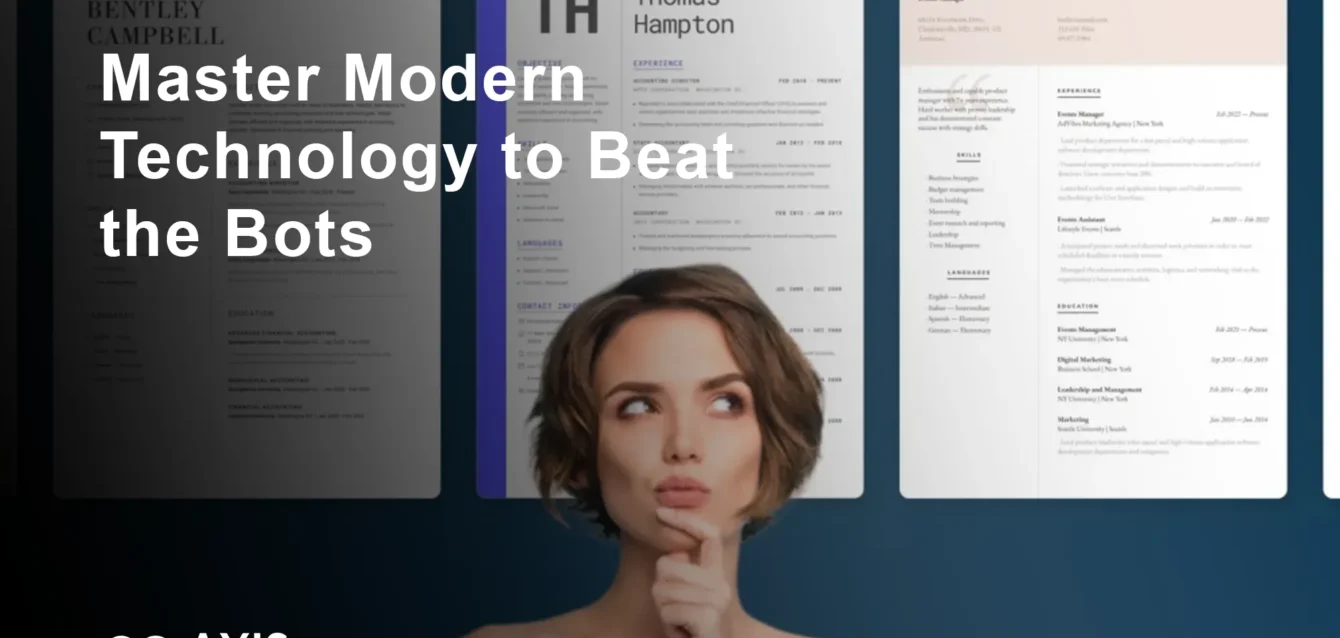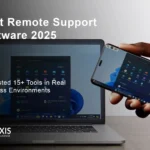By Cara Siera
For decades, literature and film have been flooded with stories of technology versus humanity, from Terminator und I, Robot zu Colossus: The Forbin Project, a 1970 thriller about a military defense system that becomes sentient.
Such wild tales have sometimes led to real-world fears about emerging technology. More common, however, are the frustrations and challenges of our everyday interactions with technology.
Below, we’ll examine three common pain points and how to tackle them, including resume-rejecting software, ad tracking, and depression resulting from too much input.
Getting the Green Light on Your Resume
If you’ve applied for a job in the past decade, you know that the search, application, and even interview processes take place almost completely online. You may have also had the discouraging experience of applying for many jobs online and not getting a single callback.
Just as you may be overwhelmed by thousands of results when you search for a job, hiring managers face something similar. They may receive hundreds or even thousands of applications for a single opening. Rather than spend weeks sorting through thousands of resumes, they turn to technology for assistance.
Applicant tracking systems (ATS) are software designed to help with different parts of the hiring process. One of their key roles is “reading” resumes and ranking them in terms of fitness for the job. Good fits get sent on to the hiring manager; poor fits are not considered further.
What can you do to beat the bots? Make sure you have an ATS-ready resume. ATS rely heavily on resume keywords, which you can find in the original job posting. Look for terms describing skills, education requirements, and minimum years of experience. Include as many of these as possible in your resume and cover letter. Doing so increases your chances of being ranked well by the ATS and continuing to the next round of hiring.
Escape the Ads
Imagine the scene: you click a link or search for a topic, only to find your browser bombarded with related ads for months. Not only can this be annoying, but, according to Wired magazine, it can also be dangerous, creating an “echo chamber” that advertises ideas or ideologies. It might appear that an idea “must be true” or “everyone is doing it,” just because cookies and trackers keep feeding you similar content.
How can you beat the bots and escape the ads? There are several methods you can use. One is to install an ad-blocking browser extension such as AdBlock. You could also browse in incognito mode. This forces limits cookies and saved data, forcing websites to see you as a “new” visitor every time you open a new incognito window.
Certain browsers, such as Firefox and Brave, operate as privacy browsers with enhanced security features that limit tracking. Finally, you can use a virtual private network (VPN) to encrypt your data and hide the identity of your IP.
Unplug to Combat Excessive Input
The consumption of electronic media has long been under scrutiny. For example, a magazine article from 1982 warned that “In the United States, the use of television rose from five hours and fifty minutes a day in 1969 to seven hours and twenty-five minutes per day in 1980.” Today, the numbers are strikingly similar, although the activities have changed. Statista reports that the average American adult spends about two and a half hours watching TV, two hours and eighteen minutes on social media, and just over an hour on video games—combined with other online activities, about seven hours online each day.
Online media has become a hub of misinformation, scams, and online bullying. But Melissa Kirsch of the New York Times recently reported something surprising about phone use: “It wasn’t the nature of the content that was making me sad, but the volume. If I sometimes feel like my hard drive is full, then it doesn’t matter if what I’m adding to the drive is, on its face, soothing. It’s just more stuff, more data, more things to process.”
If you’re feeling depressed and burned out, you can combat the algorithm by unplugging—consuming less content. I recently gave this a try. I love listening to audiobooks, especially Jane Austen’s novels and their retellings, which I find cozy and soothing. But feeling irritable while listening made me aware that my “hard drive” might also be too full. I discovered that without an audiobook in my ear, walks and yardwork were accompanied by birdsong and indoor chores by productive thoughts of my next writing project.
Even if you find sitcoms and cat videos entertaining, your brain might just need a break from the bots.
Wichtigste Erkenntnisse
You don’t have to worry about sentient computers taking over the world, but you can turn technology on technology to overcome challenges from applicant tracking systems and pesky online ads. And if you find that your personal “hard drive” is full from too much electronic input, remember that you always have the power to turn off your device and enjoy the world around you.





